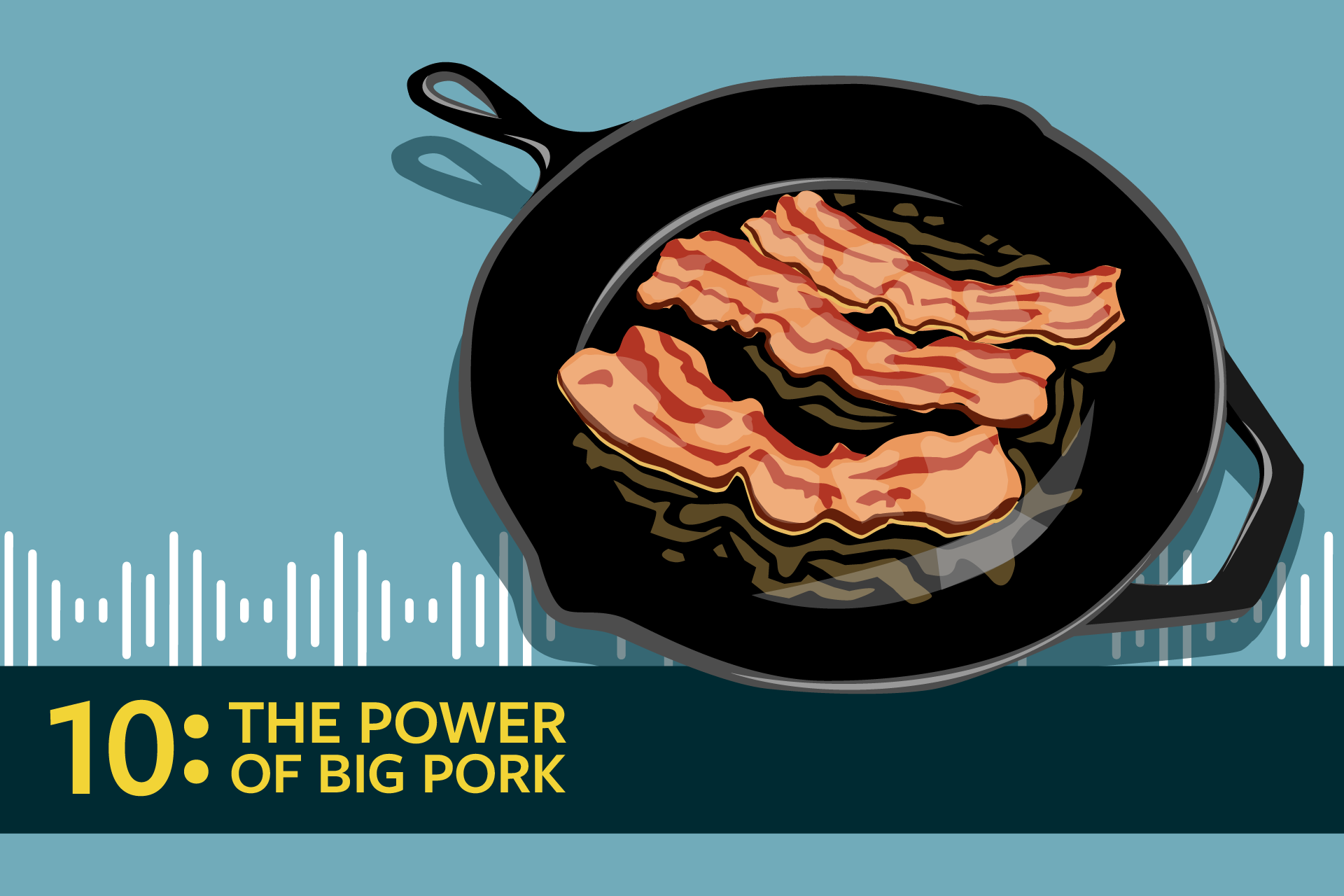New Podcast Episode on the Power of the Pork Industry
It’s hard to accept sometimes that our tastes are shaped by marketing. It feels more natural to imagine that we all just realized, at once, that high-waisted jeans are pretty cool, or that blue kitchen cabinets are more appealing than white ones. Or that bacon on a hamburger is a perfect combination that belongs right up there in the pantheon of perfect combinations, like peanut butter and jelly.
In the latest episode of our podcast, What You’re Eating, we look at that last one, bacon, and how it ended up everywhere from chocolate bars to fast food burgers to scented candles. Spoiler alert: the pork industry had a little something to do with it. They’re behind a lot of invisible moves, from lobbying the government to keep their plants open during COVID, to filling Eastern North Carolina’s air with hog manure particles to passing laws that make it harder for neighbors to complain about the pollution.
The pork industry likes to be quiet and out of sight, but it has been in the news a lot lately. Last month Smithfield joined its fellow pork processing giant JBS in settling a price-fixing lawsuit that accused them and other major meat processors — who collectively control more than 70% of nationwide pork production — of collaborating to limit the supply of hogs and inflate prices. Last month was also when the Supreme Court took up oral arguments for Proposition 12, a California law that sought to improve conditions for pregnant sows (among other animal welfare issues) by banning gestation crates for all pork sold in California. This case ended up in the nation’s highest court because the pork industry does not want to change its practices.
It’s not as fun as thinking about bacon chocolate bars, but we dig a little deeper into the industry behind this ubiquitous and beloved food. We look at the realities of industrial pork production and how the world’s industry-induced obsession with pork — bacon on everything! — contributes to environmental degradation and the hollowing out of rural communities in pork-producing powerhouse states like Iowa, Missouri and North Carolina.
Get the latest food news, from FoodPrint.
By subscribing to communications from FoodPrint, you are agreeing to receive emails from us. We promise not to email you too often or sell your information.
Top photo by fudio/Adobe Stock.
More Reading
For these cocoa farmers, sustainability and the price of beans are linked
September 17, 2025
Salmon hatcheries: Unsuccessful conservation, insufficient regulation, and poor animal welfare
September 16, 2025
Can recycled soil blends support a more sustainable future?
September 5, 2025
City-owned grocers may be a lifeline for the food insecure — but they're not the only public model
August 14, 2025
Pesticide giants want to make it impossible for you to sue
August 5, 2025
How are ultraprocessed foods defined? A new California bill aims to decide
July 25, 2025
The slow death of the family farm
July 15, 2025
A new book says tech-supported industrial ag will feed the world. Agroecologists would like a word.
July 9, 2025
Whey too much: The hidden costs of the protein boom
May 29, 2025
Beyond honeybees: The benefits of pollinator diversity
May 28, 2025

